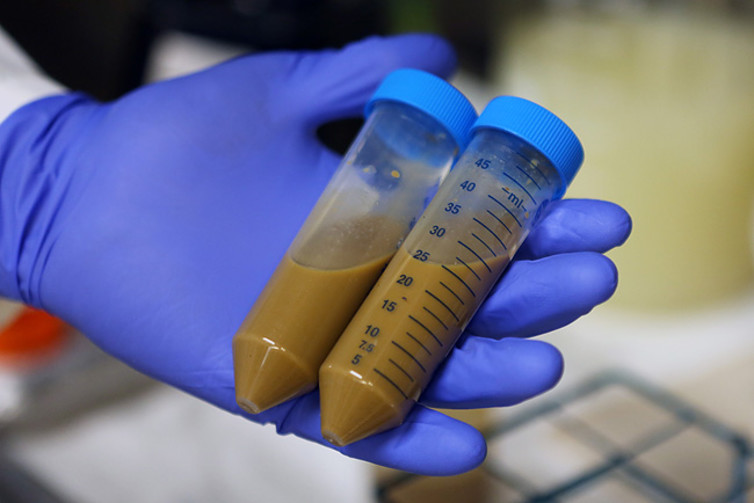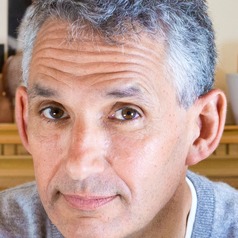A hot tip for this year’s Nobel Prize in physiology or medicine was Jeffrey Gordon. (In case you missed it, the prize went to Yoshinori Ohsumi.) Over the past 15 years, Gordon has progressed an obscure study of boring gut microbes to being a nearly daily topic in the media. Although often over-hyped, gut microbes are being used, and actively explored, as exciting treatments for many common diseases.
Publicity-shy Gordon is rarely seen outside St Louis, US. Yet he saw, before anyone else, the potential of the field. He has a knack for attracting the brightest and best to his lab and is the father figure of a rapidly expanding field. His former pupils have become professorial ambassadors for the study of microbes in the US and Europe.
What makes his study of microbes worthy? The community of microbes in the human body is now known as the microbiome and 99% reside in our large intestine – made up of bacteria, viruses, fungi and protists. There are around 100 trillion of them and – excluding our red blood cells – they outnumber our human cells ten to one. They are key to digesting carbohydrates high in fibre, and producing immune-suppressing chemicals to keep allergies at bay. With 200 times more genes than us, they also produce many of our metabolites and around 25% of our vitamins as well as brain chemicals like serotonin that influence our mood.
Gordon’s interest in the possible health benefits of microbes started in the 1990s when methods of detection were primitive – based on culture methods. But with genetic techniques, the full array, diversity and therapeutic potential of the 100 trillion microbes inside us became clear to him. He was the first to explore the role microbes could play in obesity using lab mice.
The link between microbes and obesity
In a series of experiments with his talented team he first showed that the microbes were disrupted in over-fed obese mice. But his skill and insight was in using germ-free mice who had been born and brought up in germ-free conditions to show that these effects were causal. They showed that sterile mice could eat what they liked without putting on weight. But, when inoculated with normal mouse microbes and given the same food, they put on weight. This clearly showed that microbes were crucial to digesting food. When they transplanted microbes from fat mice into skinny sterile mice they made them obese.
Gordon followed up this study using three pairs of adult human twins who differed in weight. When they took a stool sample from the fatter twin and placed it into the guts of a sterile mouse, it became fatter than the mouse receiving the transplant from the slimmer twin. Suddenly obesity could be transferred from one animal to another and you could now think of obesity as an infectious disease, suggesting you might need to be careful who you sit next to. But follow-up experiments showed that microbes from guts of lean mice were more likely to colonise an obese mouse’s gut than vice versa, suggesting that skinny people and their healthy microbes are less likely to be invaded by obesity prone microbes.
These pivotal experiments in sterile mice led to human faecal transplant studies by others, including a clinical trial of faecal transplants from normal donors into patients with obesity and diabetes. The study was too small to show a reduction in weight, but the diabetes improved. Other larger faecal transplant studies are underway, looking at it as a treatment for obesity and a wide range of other common diseases.
Faecal transplant is now the mainstream treatment worldwide for severe recurrent gut infections (C. difficile). Gordon’s ideas migrated from obesity in the West to curing malnutrition in African children who often died mysteriously from a deficiency disease called Kwashiorkor, despite treatment with food supplements. By studying Malawian twins, one with and one without the disease, he showed that the microbes of the affected kids had been disturbed and when transplanted from the kids into mice, stopped sterile mice gaining weight on normal diets.
The team are now using microbiome testing and probiotics to modify the gut community and find the right nutritional treatments. His experiments have shown that understanding the complex interactions between our diets, environment and our gut microbes is crucial for our health. I’m grateful for a rare negative experiment he performed that provoked me to join this field. This small twin study showed no difference in gut microbiomes between twins. I repeated the experiment a few years later with ten times the sample size of twins and with one of his former team at Cornell University found a small but clear genetic component for the health-related microbes which Gordon had suspected existed all along.
Although we all have a unique microbiome that is influenced by multiple factors, our diet, our environment, diseases and even our genes, Gordon’s pioneering work has ensured that despite its complexity and our incomplete understanding, humans can now harness this novel microbiome organ to improve our health. The last big surprise Nobel winner was Barry Marshall in 2005 who bravely swallowed H. pylori microbes to prove they were bad guys and caused stomach ulcers. We now know that most microbes are our friends. Gordon and our 100 trillion hard-working microbes will have to wait for their just rewards.
 Tim Spector is a co-founder of the Britsh Gut project and MapMyGut LTD. He is an advisor to Optibiotix LTD. He receives funding from a range of sources including MRC, Welcome Trust and NIHR. His is author of a book 'The Diet Myth: the real science behind what we eat' Orion books 2016
Tim Spector is a co-founder of the Britsh Gut project and MapMyGut LTD. He is an advisor to Optibiotix LTD. He receives funding from a range of sources including MRC, Welcome Trust and NIHR. His is author of a book 'The Diet Myth: the real science behind what we eat' Orion books 2016
This article was originally published on The Conversation. Read the original article.



 SpaceX Prioritizes Moon Mission Before Mars as Starship Development Accelerates
SpaceX Prioritizes Moon Mission Before Mars as Starship Development Accelerates  Tabletop particle accelerator could transform medicine and materials science
Tabletop particle accelerator could transform medicine and materials science  Jared Isaacman Confirmed as NASA Administrator, Becomes 15th Leader of U.S. Space Agency
Jared Isaacman Confirmed as NASA Administrator, Becomes 15th Leader of U.S. Space Agency  Neuralink Expands Brain Implant Trials with 12 Global Patients
Neuralink Expands Brain Implant Trials with 12 Global Patients  JPMorgan Lifts Gold Price Forecast to $6,300 by End-2026 on Strong Central Bank and Investor Demand
JPMorgan Lifts Gold Price Forecast to $6,300 by End-2026 on Strong Central Bank and Investor Demand  FDA Pilot Program Eases Rules for Nicotine Pouch Makers
FDA Pilot Program Eases Rules for Nicotine Pouch Makers  SpaceX’s Starship Completes 11th Test Flight, Paving Way for Moon and Mars Missions
SpaceX’s Starship Completes 11th Test Flight, Paving Way for Moon and Mars Missions  Lost in space: MethaneSat failed just as NZ was to take over mission control – here’s what we need to know now
Lost in space: MethaneSat failed just as NZ was to take over mission control – here’s what we need to know now 
































